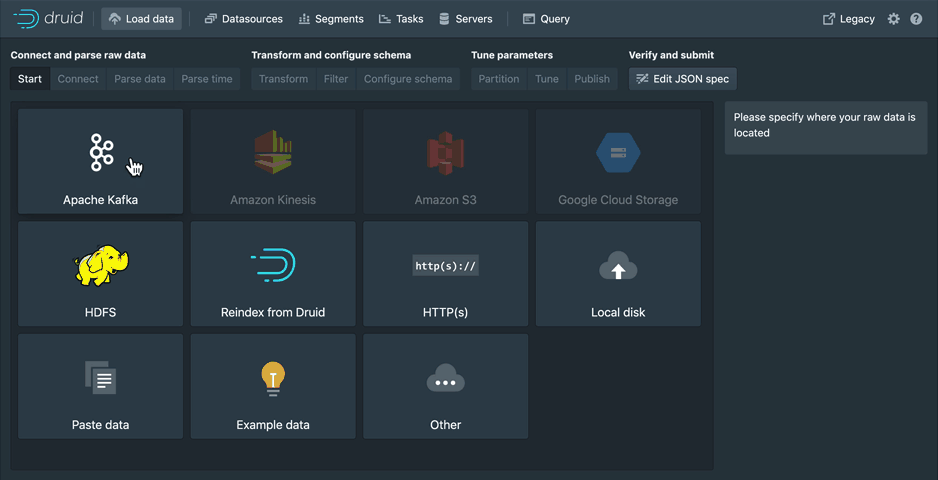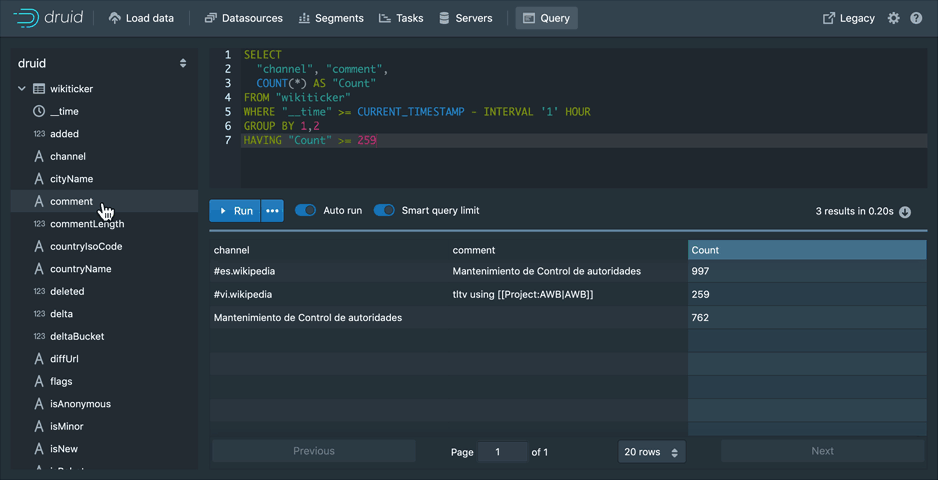* Allow for appending tasks to co-exist with each other. Add a config parameter for appending tasks to allow them to use a SHARED lock. This will allow multiple appending tasks to add segments to the same datasource at the same time. This config should actually be the default, but it is added as a config to enable a smooth transition/validation in production settings before forcing it as the default behavior going forward. This change leverages the TaskLockType.SHARED that existed previously, this used to carry the semantics of a READ lock, which was "escalated" when the task wanted to actually persist the segment. As of many moons before this diff, the SHARED lock had stopped being used but was still piped into the code. It turns out that with a few tweaks, it can be adjusted to be a shared lock for append tasks to allow them all to write to the same datasource, so that is what this does. * Can only reuse the shared lock if using the same groupId * Need to serialize out the task lock type * Adjust Unit tests to expect new field in JSON
Website | Documentation | Developer Mailing List | User Mailing List | Slack | Twitter | Download
Apache Druid
Druid is a high performance real-time analytics database. Druid's main value add is to reduce time to insight and action.
Druid is designed for workflows where fast queries and ingest really matter. Druid excels at powering UIs, running operational (ad-hoc) queries, or handling high concurrency. Consider Druid as an open source alternative to data warehouses for a variety of use cases. The design documentation explains the key concepts.
Getting started
You can get started with Druid with our local or Docker quickstart.
Druid provides a rich set of APIs (via HTTP and JDBC) for loading, managing, and querying your data. You can also interact with Druid via the built-in console (shown below).
Load data
Load streaming and batch data using a point-and-click wizard to guide you through ingestion setup. Monitor one off tasks and ingestion supervisors.
Manage the cluster
Manage your cluster with ease. Get a view of your datasources, segments, ingestion tasks, and services from one convenient location. All powered by SQL systems tables, allowing you to see the underlying query for each view.
Issue queries
Use the built-in query workbench to prototype DruidSQL and native queries or connect one of the many tools that help you make the most out of Druid.
Documentation
You can find the documentation for the latest Druid release on the project website.
If you would like to contribute documentation, please do so under
/docs in this repository and submit a pull request.
Community
Community support is available on the druid-user mailing list, which is hosted at Google Groups.
Development discussions occur on dev@druid.apache.org, which you can subscribe to by emailing dev-subscribe@druid.apache.org.
Chat with Druid committers and users in real-time on the #druid channel in the Apache Slack team. Please use this invitation link to join the ASF Slack, and once joined, go into the #druid channel.
Building from source
Please note that JDK 8 is required to build Druid.
For instructions on building Druid from source, see docs/development/build.md
Contributing
Please follow the community guidelines for contributing.
For instructions on setting up IntelliJ dev/intellij-setup.md







